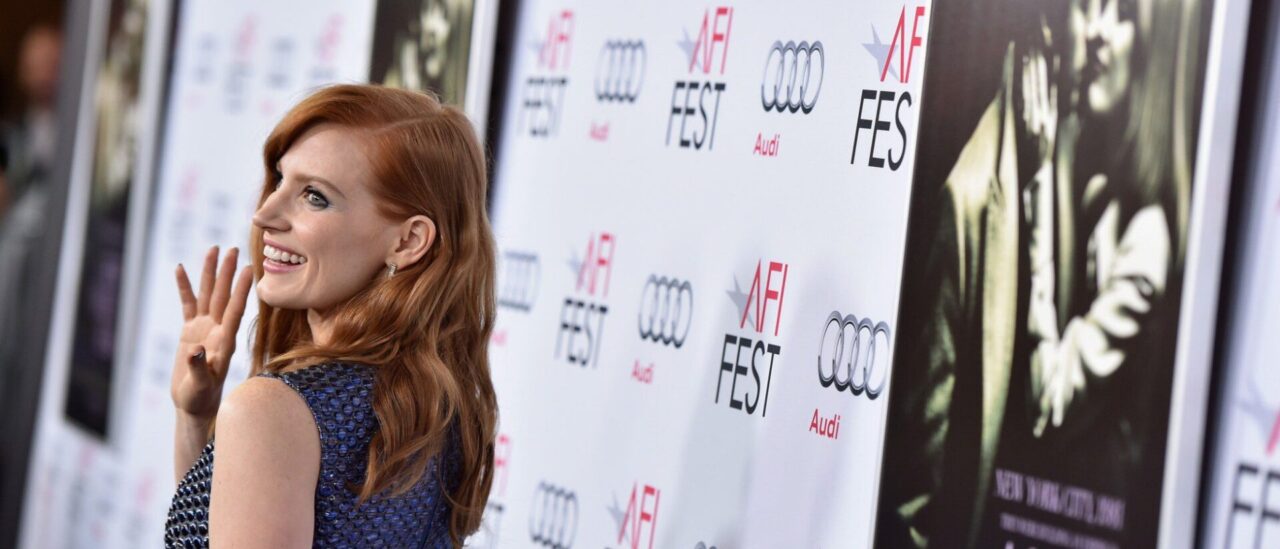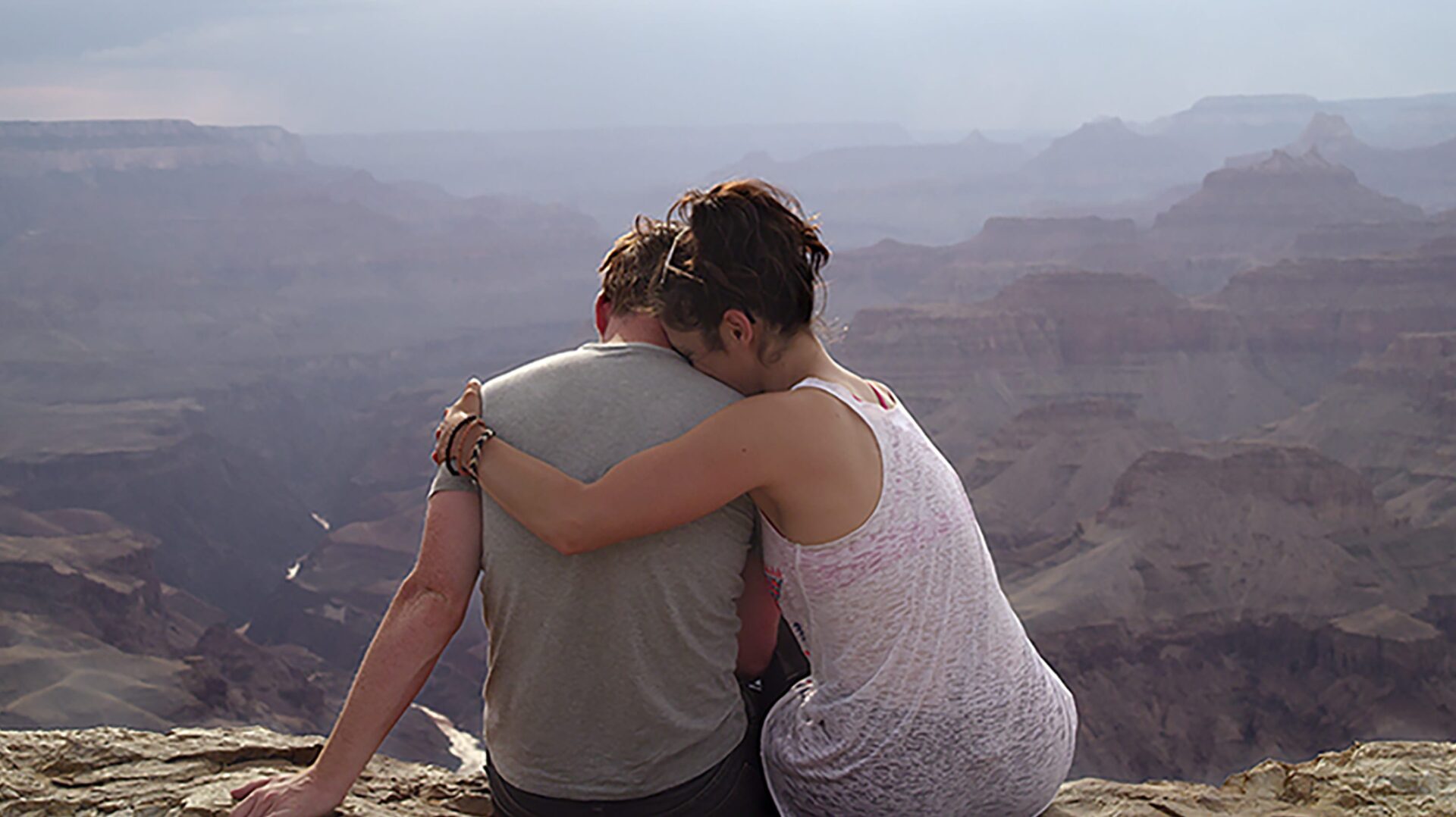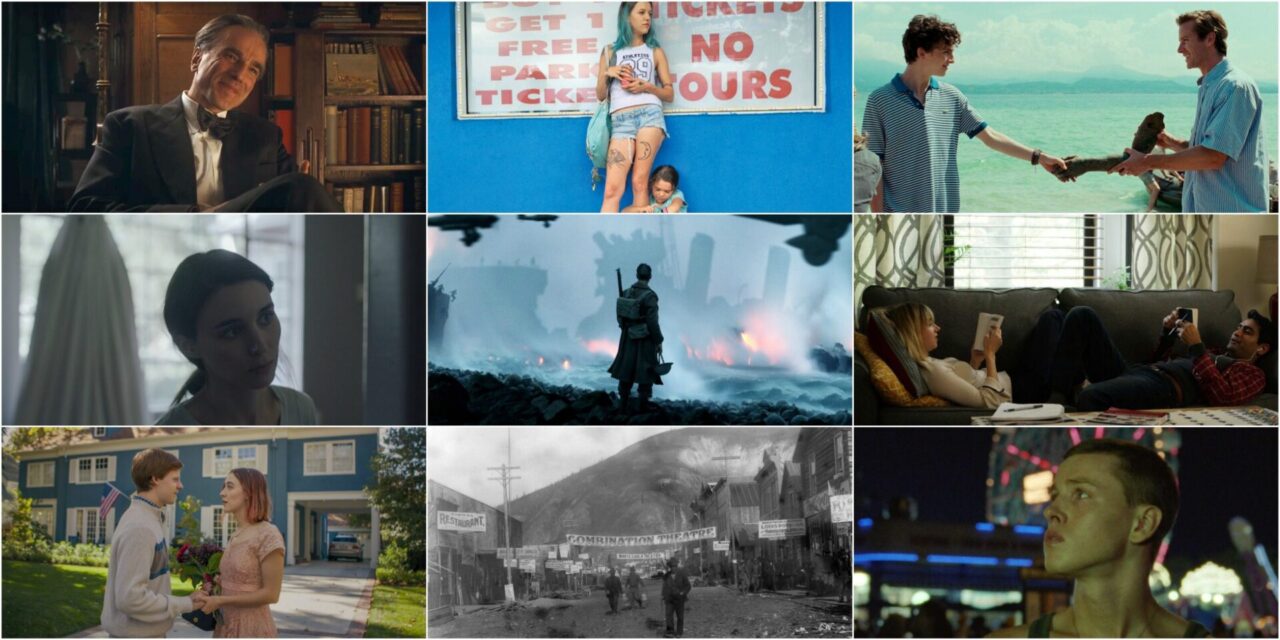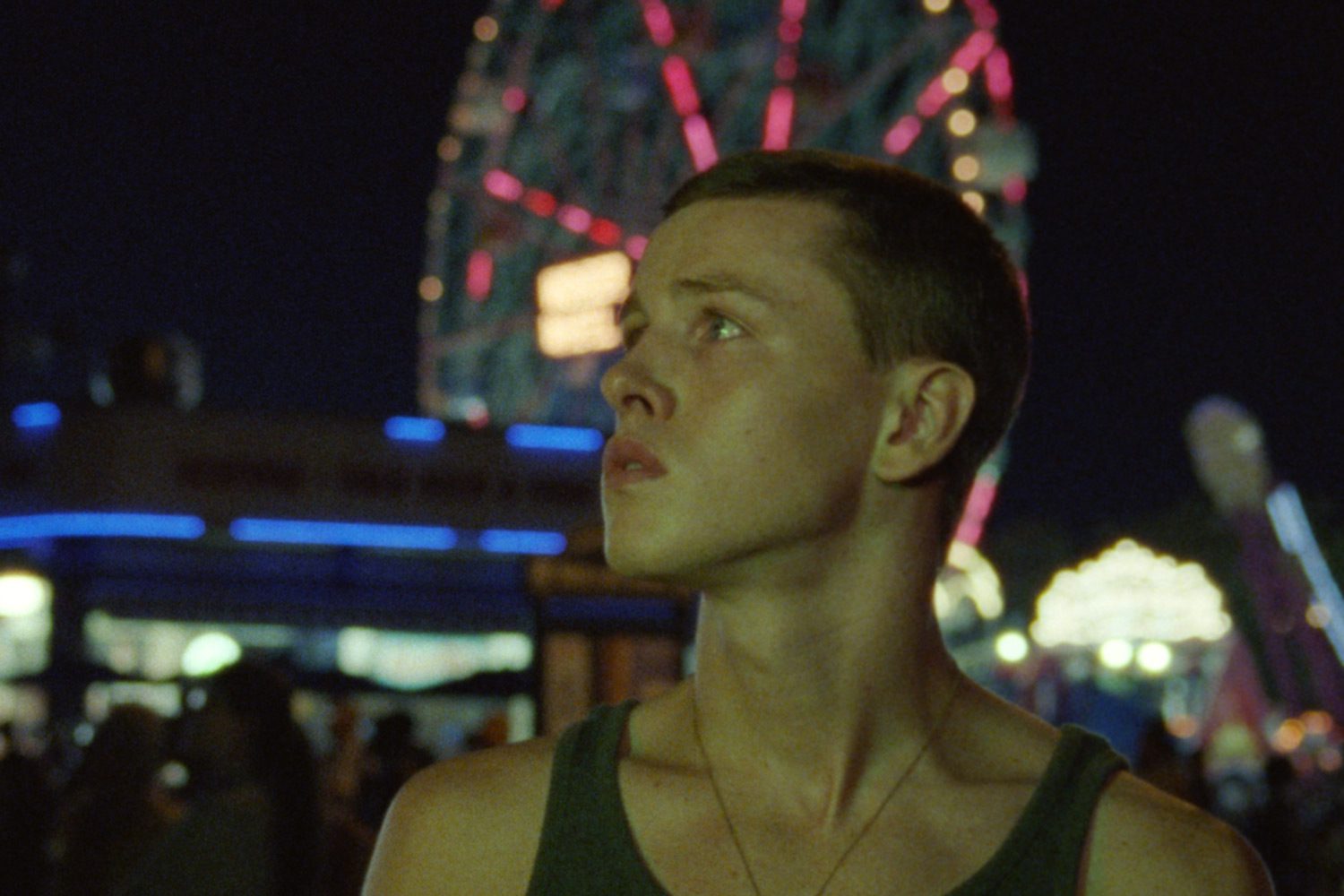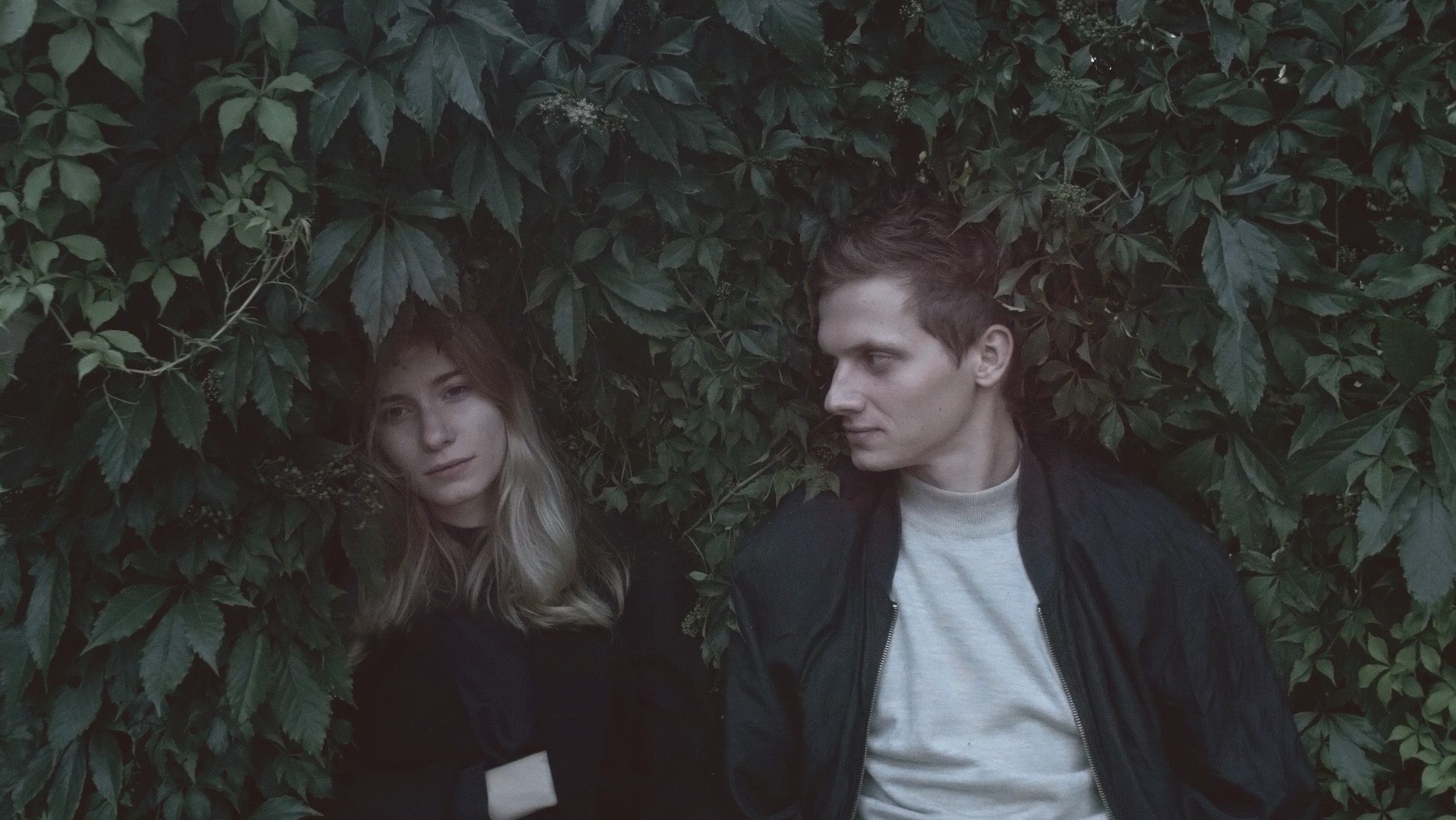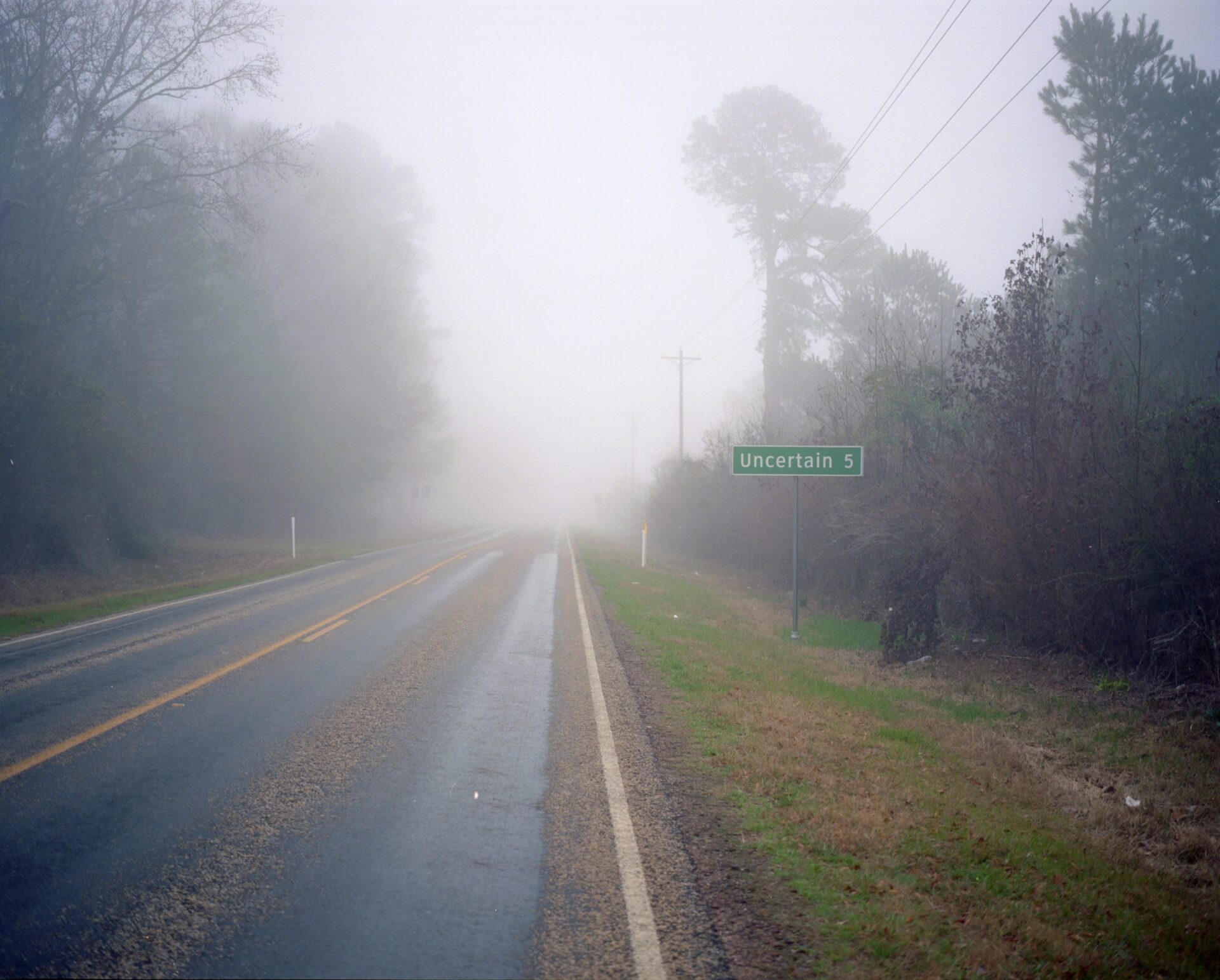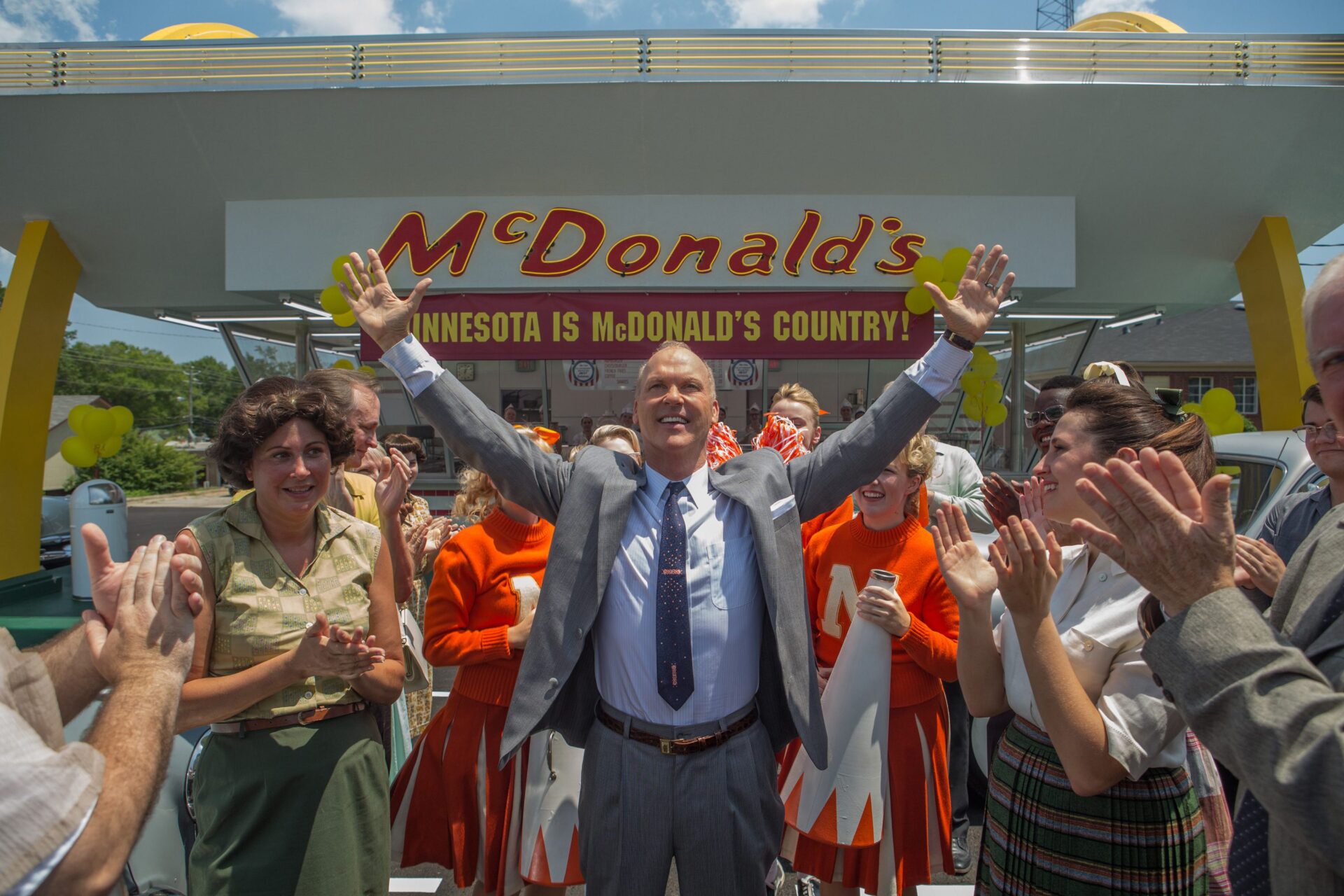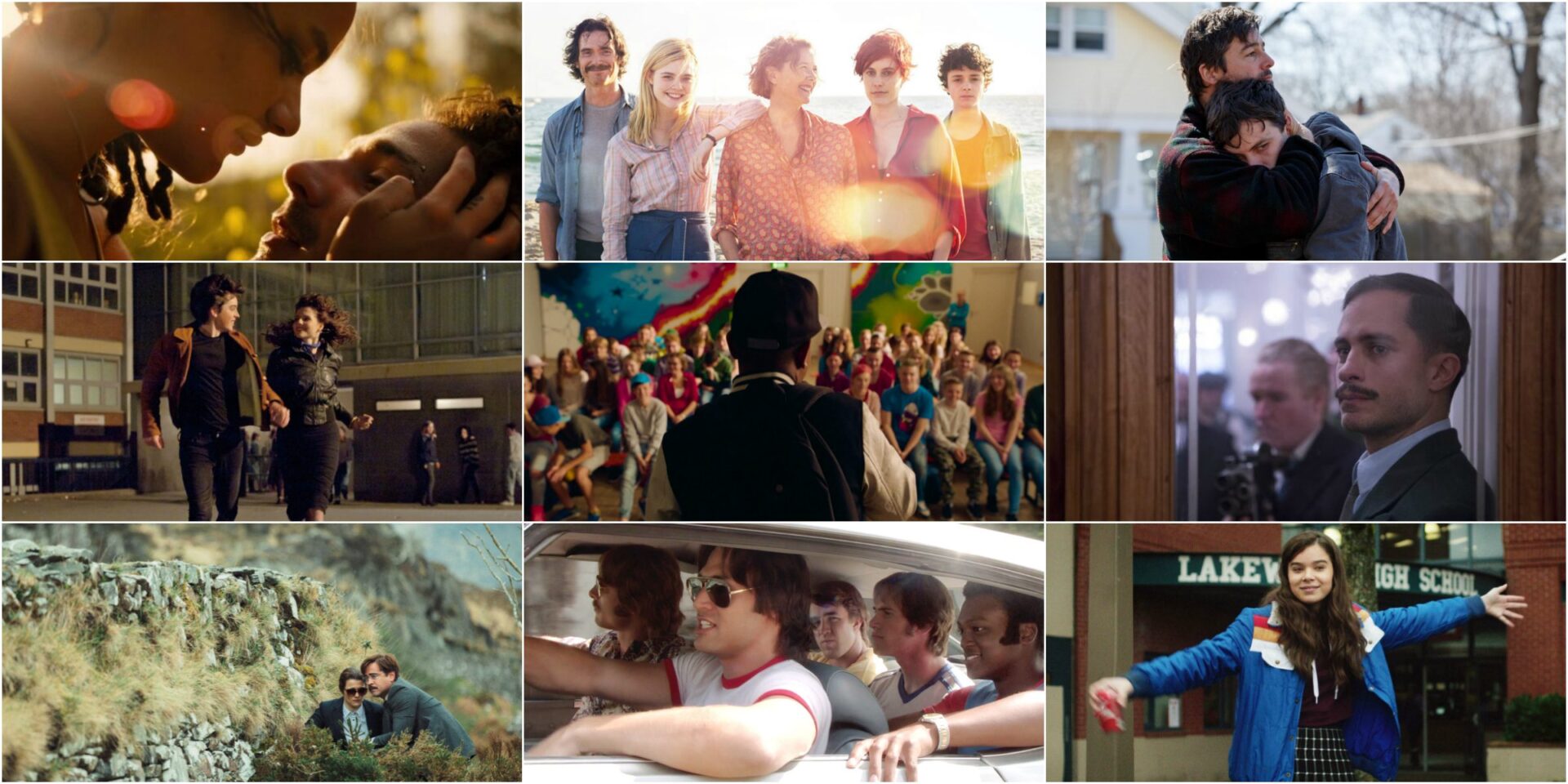A Look Back at the Opening Night Films of AFI Fest
Ah, it’s the most wonderful time of the year. Not the Christmas season… please don’t put those decorations out yet. It’s Awards Season.
The time that begins with a run of fall film festivals that trickles into the holiday Academy buzz that cascades into the January awards ceremonies. But hold up a second… let’s not get ahead of ourselves. Let’s enjoy where we’re at for a moment.
This weekend brings the festival rush to Los Angeles again. Shortly after the Los Angeles Film Festival’s final run in September, AFI Fest settles in for another week in the center of Hollywood. It’s an event that brings the last rush of festival premieres stateside with a load of rare and hard-to-see international and independent cinema. It’s an enchanting little festival, and accessible to all -- free tickets for any screening is a rare act of embrace toward cinephiles, cine-curious and cine-tourists alike. And for a film fan of any ilk, this is why it's the most wonderful time of the film calendar. A good film is around every corner -- whether it’s in the awards conversation or not.
To an Angelino who keeps an amateur horse in the Oscar race, AFI Fest can also be the eve of ‘Awards Time’ in the city of stars, with new films from Cuarón and the Coen Brothers revealing themselves to a West Coast audience. The American Film Institute has, again, pulled an impressive lineup together with early festival favorites Steve McQueen’s Widows, Yorgos Lanthimos’ The Favourite and Peter Farrelly’s Green Book among the headlining films. While these films have already cemented a strong leg in the race with small tours of the September festivals, a couple high profile world premieres are on the schedule as well.

On the Basis of Sex, courtesy of Focus Features
Opening night brings On the Basis of Sex, the story of Supreme Court Justice Ruth Bader Ginsburg to the festival with curiosity surrounding its place in the awards conversation. The same goes for the closing night film Mary Queen of Scots, starring two of last year’s lead actress nominees Margot Robbie and Saoirse Ronan. It’s easy to get caught up in the whirlwind of “will they or won’t they” with prestige players, especially at a major festival in the heart of the movieland. But a scan down the list of the AFI Opening Night films suggests that getting lost in speculation may not be as necessary as it seems.
Since 2000, only six of the AFI Fest opening night films have garnered at least one Oscar nomination. Only one movie has ever won (Walk the Line, 2005), and it was for a single award (Reese Witherspoon for Best Actress). The three to snag above-the-line nominations -- O Brother, Where Art Thou?, Fantastic Mr. Fox, and last year’s opener, Mudbound -- debuted at Cannes, London, and Sundance respectively, thus already having goodwill in their pack. The rest comes from a similar breed. Since 2000, over half have been a true-story or biopic (The Soloist, J. Edgar, Hitchcock, Saving Mr. Banks to name a few), just under half directed by an actor (Antwone Fisher, Bobby, Lions for Lambs, By the Sea to name a few more) and all can be considered to some degree a “populist” movie. Something harmless that you can broadly recommend to your folks at the holidays when they ask what the big movies are this season. The opening night films have often been the "star-iest" of the festival, bringing out the big names that get the party going. But in the end, these films have mostly been non-starters -- or, films with the names and the sheen but without the edge that critics and pundits look for.

Angelina Jolie on the red carpet for By The Sea. Courtesy of Bros 4 America
This isn’t to write-off this year’s opening film, On The Basis of Sex. It is an essential story of 20th century American progress directed by a woman (Mimi Leder) premiering in a town that still needs more stories told with the female voice. But all in all, it is a reminder to not get lost in the hype, which may have been one of the reasons why the Los Angeles Film Festival, put on by Film Independent, wilted. LAFF's pivot from their usual summer slot to a fall slot got lost without a key awards release on the bill, despite having a program full of outstanding cinema from eclectic voices. The film festival economy should serve as discovery center for film-lovers, not a feeding station for the first look. The best films to find at a festival like AFI Fest are the little foreign needles in the Hollywood haystack.
If you’re heading to AFI Fest this week, listen to these off-the-radar stories just as you would a contender. The need to cultivate contemporary voices is more important than ever. Wander into a smaller theater, and hear another language you may not have heard before. See a new landscape you didn’t know existed. That is the real beauty of the Awards Season. It’s a time when the best of Hollywood comes out to play, so don’t count out the underdogs.
'West of Her' Review: A Charming, Simple Road Movie
The mythos of the American road trip has been both glorified as an essential and affirming part of the American experience but also diluted as a clichéd escape for those lost and longing for something beyond this modern society.
West of Her longs to ride alongside the great road movies of the last century, but gets a little lost off the main highway by taking a turn down platitude place.
West of Her follows Dan (Ryan Caraway), as his mid-life crisis leads him to sign up for a mysterious guerilla art project that sends him across the country installing cryptic tiles on curbs. Accompanying him is the even more mysterious Jane (Kelsey Siepser), who carefully conceals her reasons for joining the project. As they traverse the west, Dan and Jane find themselves more drawn to each other as they ponder what it all means.
...it's hard not to wish the more mysterious direction was developed further.
The film is loosely based on the real-life Toynbee Tiles - a series of similarly tiled messaged embedded on pavement all across the country. The artist (or artists) and installers of these tiles still remain a mystery. While first-time writer/director Ethan Warren’s musings of how a project could have been possible is an interesting concept, this impetus doesn’t seem to pay off. The tile project of West of Her is just as mysterious as it was when the film began. This is by design – the project serves more as a metaphor for the character’s journey’s – but it's hard not to wish the more mysterious direction was developed further.
Caraway and Siepser’s chemistry is what holds the movie together. As the film meanders between attempts at Linklater-esque conversations and Malickian montages of some of the great American landscapes, it is their charm that keeps you along for the journey. The characters' backstory and vague philosophizing don’t amount to much else beyond a good ol’ “it’s all gonna be ok,” but it is hard to not be charmed. It is a slight film, not quite revelatory, but West of Her is a beautiful ride and an assured debut.
'West of Her' is not rated. 90 minutes. Now available on various VOD platforms.
https://youtu.be/2REvY83K1Vc
Jasper’s Top 10 Films of 2017
What we here at Cinemacy consider to be the best of this year represents a combination of the movies that had the greatest emotional impact on us, matched with movies that felt innovative or groundbreaking. Here are the films I consider to be this year’s best:

10. Beach Rats
Following in Moonlight’s glow, Beach Rats was a quiet, but essential, entry for a banner year showcasing queer adolescence on film. It tells the story of a working-class South Brooklyn teenager juggling his rugged social life with a growing desire for older men. Beach Rats may have been the film of the summer– not for its beaches and boardwalks, but for its spirit of freedom, exploration, inhibition, and restlessness. Director Eliza Hittman’s deft 16mm naturalism and gentle eye provide documentary-like intimacy, giving the film clear authenticity and avoids being a standard "coming out" story. It’s an exploration that opens more dramatic doors than it closes. But identity, especially queer identity, is a restless journey. Beach Rats is all the better for recognizing this.
Read our full ‘Beach Rats’ review here.

9. Dunkirk
Every frame of Dunkirk is immaculate, but perhaps the most frightful details in Christopher Nolan’s WWII epic are those that are unseen. One is, of course, time - a theme that Nolan has often deconstructed throughout his career in radical ways. His triple-layered timeline is a dazzling trick of narrative rewiring that creates the tension of a ticking time bomb (both figuratively and literally and, s/o Hans Zimmer, musically). The second detail comes from the enemy - the Germans - whom we very, very rarely behold. The notion that a white-knuckle behemoth like Dunkirk can be driven by two nearly invisible antagonists is a testament to Nolan’s faith in human drama. It’s grandiose and gorgeous, but Dunkirk is a deceptively simple and intimate portrait of humans struggling to survive - trudging onward despite the chaos hiding in the water. In an anarchic year, it was an essential reminder to huddle close and press forward.
Read our full ‘Dunkirk’ review here.

8. The Shape of Water
The list of quality films capturing the American political zeitgeist was long: Get Out’s masterful translation of racism into Hitchcockian thrills, Three Billboards Outside of Ebbing, MO’s sardonic tackling of sexual assault and police, among others. The Shape of Water, a post-war fairy tale of a mute woman who falls in love with an amphibious creature captive in a government lab, is a quiet allegory for a number of debates aflame in modern America, from science vs. the government to sexual identity. But all of this political relevance lay deep beneath Guillermo del Toro’s homage to monster movies, film noir, and the golden age of movie musicals. It packs so much into a beautiful story about the one thing that was perhaps absent the most from any headline this year: love.
Read our full ‘The Shape of Water’ review here.

7. Phantom Thread
Phantom Thread, the latest film from director Paul Thomas Anderson and the last film from actor Daniel Day-Lewis, inhabits in the world of haute couture fashion. Haute couture involves the creation of custom-tailored garments by hand with unique, and often expensive fabrics and extreme, time-consuming attention to detail. Even prior to Phantom Thread, it would be more than reasonable to deem both Anderson and Day-Lewis the leading couture artists in their respective crafts. But Thread shows two master artisans exploring the anxieties of perfection with deliciously dark humor and gothic psychodrama. Phantom Thread introduces a new star in Vicky Krieps, who snatches the spotlight from Day-Lewis as his muse and lover and flips the tables of domestic power and the male gaze in her wake.
Read our full review of ‘Phantom Thread’ here.

6. Call Me By Your Name
Something amazing happens about twenty minutes into Call Me By Your Name, the story of a teenager’s sexual awakening with his father’s student-in-residence. It’s a slight moment, but highly unusual. Teenage Elio (a revelatory Timotheé Chalamet) take a bite out of an apricot and you can taste it. Minutes later, Elio shows Oliver, (an outstanding Armie Hammer), around his countryside southern Italian town by bike and you can feel the warmth of the summer sun on the backs of your hands. It’s a pure magic trick by director Luca Guadagnino, but what he has crafted is the most sensuous movie of the year, a film that basks on the little details of life, love, and learning about yourself. Like Beach Rats, Call Me By Your Name is a restless exploration of queer sexuality. But its emotions are universal. It is a magnetic story of falling in love for the first time and opening the door to yourself and throwing away the key. Rarely does a film treat young love with the unfettered joy and grace that is given here.
Read our full ‘Call Me By Your Name’ review here.

5. Lady Bird
There’s a beautiful moment in Lady Bird, which follows the titular high school senior as she navigates her final year before she leaves Sacramento for college. She’s going over a college essay with a nun at her school when Sister Joan mentions that she describes her hometown quite lovingly. The snarky Lady Bird quickly replies, “...I guess I just pay attention.” To which Sister Joan queries, “Don’t you think maybe they’re the same thing? Love and attention?” It’s a beautiful thought and one that defines Greta Gerwig’s gift of a debut feature. It’s a standard coming-of-age story that treats each of its characters with not only attention but admiration for both their beauty and their blemishes. Saoirse Ronan’s magnificent lead performance navigates an excellent ensemble of characters that Gerwig has developed with patience and honesty. But the most enduring reflection of Lady Bird comes in its affectionate appreciation of “home” - whatever side of the tracks it may be on.
Read our full ‘Lady Bird’ review here.

4. A Ghost Story
Deceptively simple on its surface, A Ghost Story may be the most beguiling movie of the year (apologies to The Beguiled). To call it "the story of a ghost observing years worth of tenants in a Texas home" would be both redundant and belittling. Director David Lowery’s (Pete’s Dragon) near-silent fable is a rich and voyeuristic meditation on life, death, time, loneliness, and countless other heady matters that are grounded by the simple image of a timeless white bedsheet ghost. Apologies if this is a rather vague blurb, but if there was one movie this past year that the old cliché “has to be seen to be believed” applied to, it would be this. And guaranteed, you’ll believe in ghosts after this story.

3. The Big Sick
The romantic comedy started to find its way back to cultural (and political) relevance with The Big Sick. The true story of star Kumail Nanjiani (playing himself) and his wife Emily’s (Zoe Kazan) early relationship sees her fall sick with a mysterious illness that puts her in a coma for weeks, leaving Kumail to bond with Emily’s parents as she recovers. Touching on everything from Islamophobia to biracial relationships to the healthcare system, Nanjiani’s film does it all with a whip-smart, but tender sense of humor. Perhaps it is a bit unfair to call it Nanjiani’s film, as Michael Showalter's understated direction guides the film's careful drama/comedy balance. But Nanjiani and his wife Emily (co-writer) bring the rom-com in the Trump era with a much-needed dose of timeliness and some of the most hilarious moments of the year.
Read our full ‘The Big Sick’ review here.

2. Dawson City: Frozen Time
In the 1970s, close to 400 reels of silent films - many thought to be lost - were found buried in the permafrost under a Canadian mining town. These films make up the majority of the documentary Dawson City: Frozen Time, which unravels the history of the town, from gold mining to it’s surreal connections to the birth of Hollywood. The process of mining or panning for gold is laborious. It often involves hours, days, weeks, even months to find a few flecks of gold dust buried in the sediment of a river. Documentary film is not much different, spending hours, days, weeks, months, even years locating and subsequently digging through archival footage to piece together a narrative. From the unearthed reels, Dawson City: Frozen Time weaves an intricate tapestry– from gorgeously restored prints co-opted to form the history of Yukon life, film history, and the cycles of the American dream. Accented by a hypnotic score from Sigur Rós collaborator Alex Somers, it is a powerful story from a town that would seem to have no tale to tell. A film that will renew love for cinema tenfold.

1.The Florida Project
In an era of sensory overloaded blockbusters, it may come as a surprise that The Florida Project was easily the most immersive film of the year. First, it’s vibrant central Florida locale amongst the kitschy motels on the outskirts of Disney World; the rich pastel colors under the bright blue sky is spellbinding. But it’s a movie of visual and narrative contradictions. The film is told through the eyes of Mooney, a 6-year-old living with her loving, but young and irresponsible mother - struggling to make ends meet - in a motel room among similar struggling families. The dissonance of narrative and visual serves director Sean Baker’s vision of seeing the world as a kid again. And it works like magic. While captivated by the colors and wonder of the setting, it becomes fascinating what we aren’t seeing - the reality of Mooney’s situation becomes clearer very gradually. Baker’s patience as a storyteller and his keen eye not only craft a world but invite you to explore the world as an active character, not just a passive viewer. His humanist touch is a welcome and necessary lens into an overlooked part of America and harnesses a nostalgia for being young, all while revealing an uncomfortable truth about class in this country. The Florida Project is a remarkable travelogue and brilliant exercise in storytelling.
Read our full ‘The Florida Project’ review here.
'Beach Rats' Review: Eliza Hittman’s Late-Summer Gem is a Moving Look at Sexual Identity
Growing up, I always found that summertime was the ultimate period of freedom: a time of movement, restlessness, inhibition, and exploration.
It is never clearly specified whether Beach Rats is a summer-set film, but it sure does feel like one. And it’s not only because of the South Brooklyn beaches and boardwalks and shirtless boys. It is that same sense of restlessness and passage that makes Eliza Hittman’s second feature an essential late-summer gem.
Beach Rats follows adolescent tough-guy Frankie (Harris Dickinson) and his boys as they get high, play handball, and look for girls under the Coney Island fireworks. His outward masculinity cloaks his inner desire for older men, which he finds in late-night chat rooms. After meeting his feisty girlfriend (Madeline Weinstein), his inner conflict begins to simmer.
[Hittman's] eye for subtlety is a remarkable gift, guiding the frame with a careful, unobtrusive hand.
The most fascinating part about Beach Rats is Frankie’s vague openness about not knowing “what he likes.” He never addresses his sexuality in explicit terms toward either side of his struggle. Instead, director Eliza Hittman lets Frankie’s actions guide the story. Her eye for subtlety is a remarkable gift, guiding the frame with a careful, unobtrusive hand. She lets Frankie’s tough demeanor erode, without ever chipping away at it to quicken the cracking, giving the film a feeling of docudrama. While this can, at times, drag the pace, it nonetheless is a captivating character study.
The likeness of Moonlight in Beach Rats is visible but acute, and a comparison should halt at the simple details. But it is Hittman’s deft naturalism that quickly separates it from the operatic Best Picture-winner in a formal sense. The grit of 16mm coats a sheen of timelessness, the only stark props of the 21st century being Frankie’s internet chatrooms and the vape store he frequents. In this way, the film feels nostalgic, beyond the nostalgia of adolescence. But, most importantly, it gives the film clear authenticity and it avoids being a standard coming out story. It’s an exploration that opens more dramatic doors than it closes. But identity, especially queer identity, is a restless journey. Beach Rats is all the better for recognizing this.
'Beach Rats' is rated R for strong sexual content, graphic nudity, drug use and language. 95 minutes. Now playing at ArcLight Hollywood.
'All These Sleepless Nights' Review: A Pulsing Portrait of Restlessness
The faux-documentary feels like one long day morphing into one long night.
All These Sleepless Nights is a billed as a documentary but from the get-go though, it is hard to see how. It is impossibly cinematic and stirringly intimate. It blurs the line between narrative and nonfiction in a way that feels like a trick or mismarketing, intentional or not. Nonetheless, the third film from young Polish director Michal Marczak is a wistful and dreamy portrait of youth, love, hedonism, and a whole lot of dancing.
The film follows post-relationship Krzysztof Baginski, a Warsaw twenty-something rediscovering a sense of freedom he seems to have lost touch with. With his roommate Michal Huszcza, he roams around the city into the wee hours of the morning, dancing in clubs, dancing on the beach and dancing in the streets. He sprints on top of parked police cars and walks through the subway tunnels. He falls into a brief relationship with Michal’s ex-girlfriend, Eva Lebuef, and briefly falls out of his friendship Michal. There is no arc so to speak, but this does give the film a sense of time and narrative trajectory, of sorts.
... a wistful and dreamy portrait of youth, love, hedonism, and a whole lot of dancing.
But time is rather irrelevant to Krzysztof and his friends. The title of the film should hint at that. All These Sleepless Nights feels like one long day morphing into one long night. It seems to take place over months, but it feels like a few days. This is one of its biggest strengths. In the same fashion as Malick, Marczak does a beautiful job of making little moments feel transcendent. The dance sequences are particularly wonderful - abstract moves set to an ambient soundtrack, shot in wide frames, with Marczak seeming to dance around the characters himself. He makes the most generic of evenings at the club seem mystic and timeless. Narrative time is a construct in his film; this is also confirmed through Krzysztof’s sparse, but fascinating voiceovers.
But then again, All These Sleepless Nights can feel rather meandering because it is just that. Nothing much becomes of Krzysztof; he doesn’t seem to gain much from his experiences. He doesn’t have a particularly dynamic personality that leads to anything especially emotional. The film does droop but never drags. But, perhaps, that is okay. It’s always in motion but paces itself. And, perhaps, that is what makes the blurry “is it actually a documentary or is it a narrative” line almost moot. What Marczak has made is a quiet, pulsing portrait of the restlessness of not knowing where to go. By the film’s end, it may still be wandering, but at least it is dancing.
'All These Sleepless Nights' is rated R for language and smoking throughout, drug use and some sexuality/graphic nudity. 100 minutes. Opening at the Nuart Theater in Los Angeles today and the IFC Center in NYC on 4/14.
Director Michal Marczak will be doing Q&As on Friday, April 7 and Saturday, April 8 (following the 7:30 pm shows) with intros both nights for the 9:50 pm show.
'Uncertain' Review: A Portrait of Life in a Small, Eclectic Texan Town
Uncertain is a small film about a small town, but it feels expansive.
It goes without saying that America has found itself in troubling times; outwardly divided, inwardly and continually conflicted about moving forward into a new millennium. It is a watershed moment politically and culturally - one that, perhaps hyperbolically, defines the future. Thus it is funny and comforting to find a film like Uncertain, the debut feature documentary from Ewan McNichol and Anna Sandilands. It is a gentle reminder of the grace in change and the balances of life.
Uncertain turns its attention to the titular town of Uncertain, Texas - a small whistle-stop on the Texas/Louisiana border with a population of 94. The town’s central economic attraction is Caddo Lake, a boggish body of water known for its fishing, but being overrun by invasive algae that threaten the fish population. While scientists attempt to quell the problem, this conflict serves primarily as a metaphor for the townsfolk, whom McNichol and Sandilands choose to turn their lenses toward.
One is a lonely fishing guide, Henry, who longs for his late wife of 50 years. There is Wayne, a recovering addict who obsesses over hunting down a hog he calls “Mr. Ed” in the town woods. And then there is young Zach, an alcoholic diabetic who maintains a realistic optimism about his finding a place in the world.
For a documentary, Uncertain is rich with metaphor.
For a documentary, Uncertain is rich with metaphor. There is, of course, the name Uncertain - a timely name considering the town’s hazy prospects, but also, its inhabitant's lives. Each of its three characters finds themselves at a point of motion. Henry, who wants to go back, yet understands he has to move forward. Wayne, moving forward, has found a good life in Uncertain, while continuing to learn to accept his troubled past. Zach wants to move on and be better. Like the lake that sits at the center of their home, they all share a quiet, patient resilience.
Following in the tradition of recent top cultural documentaries like Bombay Beach and Rich Hill, Uncertain is a small film about a small town, but it feels expansive. The gorgeous photography traversing the lake makes the town feel cinematic. But McNichol, who acts a cinematographer here as well, finds an understated intimacy with his and Sandilands’ subjects, always framing them as part of their surroundings. Perhaps the greatest strength of Uncertain is McNichol and Sandilands’ understanding of the relationship between their film’s characters and it’s location. Without one, the other is left meaningless.
'Uncertain' is not rated. 82 minutes. Now playing in select theaters in New York and on VOD and iTunes March 17th.
'The Founder' Review: The Unsavory Rise of the McDonalds Empire
It feels eerily appropriate that The Founder is being released nationwide on the same day as the presidential inauguration. It’s a film that serves as both a necessary history lesson and cautionary tale about the beginning of big business and modern consumerism, a concept that could potentially continue to dictate our political climate more than it ever has. Politics aside, The Founder is also a highly entertaining rush of popcorn Americana– light, enjoyable, dramatic fare. A tasty biopic, but one that may not sit well after you leave the theater, a little bit like the restaurant it focuses on.
The Founder, directed by John Lee Hancock, follows not the foundation but the expansion of McDonald’s into modern cultural ubiquity. Ray Kroc (another winning performance from Michael Keaton), a traveling milkshake machine salesman, finds his business stalling until he receives an unusually large order from a restaurant in San Bernardino, CA called McDonald’s, run by the eponymous brothers Mac and Dick McDonald (John Carroll Lynch and Nick Offerman). Kroc, fascinated by their innovative methods of delivering food in an instant, convinces the brothers to let him expand the business through franchising. Soon, Kroc’s obsessive quest for success knocks the brothers out of the company and leads McDonald’s to its current corporate domination.
The story of McDonald’s is inherently fascinating to watch unfold (though especially now considering the current affluenza rampant in American politics). It is a saga that most consumers are ignorant to, despite being the origin of one of the most recognizable symbols of American culture. Thus, it provides a rather gripping tale of competing definitions of the American dream. The warring visions of Kroc and the McDonald brothers establish a revealing dichotomy of old and modern business, and consequently old and modern America. Conceptually, these ideas are rich and compelling. Narratively, the film is quite compelling as well. A lot of this can be attributed to Keaton’s nifty casting as Kroc. Slimy, but nimble as a lizard, his performance is quite magnetic.
But while the historical story is subjectively enthralling, it’s hard to call The Founder a great movie. It is a highly competent film, but far too methodical. It’s central conceit, putting Kroc as the main role, proves to be perhaps it’s greatest flaw. As an anti-hero, his character doesn’t work because there isn’t much he’s been given in the film to make us like him. He’s greedy. He’s sleazy. All he does is take without much to lose and succeeds without much complication. Everything written into the film seems intended to forward Kroc’s success and, in turn, the plot. If the supporting characters don’t participate, they are unceremoniously dropped out of the film (i.e. Laura Dern’s depressingly two-dimensional role as Kroc’s first wife.) Some characters exclusively speak blunt exposition. BJ Novak’s role as Harry J. Sonneborn - the first president of McD’s - is literally only inserted to explain McDonald’s real estate business. One can only wonder if the film focused on the McDonald brothers, who actually have an emotional character progression, if that could have made The Founder more effective (because at least they have a soul). But, like in the film, they sell out too, perhaps unintentionally, for something flashy… just like the Golden Arches at night.
The Founder is rated PG-13 for brief strong language. Runtime of 115 minutes. Now playing at The Landmark.
Jasper's Top 10 Films of 2016
What we here at Cinemacy consider to be the best of this year represents a combination of the movies that had the greatest emotional impact on us, matched with movies that felt innovative or groundbreaking. Here are the films I consider to be this year’s best:

10. Sing Street | d. John Carney
Every so often there comes a movie that Hollywood deems the “savior” of the musical. "Moulin Rouge!" is 2001, "Chicago" in 2002, etc. While "La La Land" will reap that title in 2016 (it’s really great, of course), one mustn't forget a little move called "Sing Street," a joyous rush of 80s pop and new wave energy from director John Carney. Carney has made a name for himself over the last decade with his deep admiration for music in his films. While his debut, the cult favorite "Once" looked to find love between two small-town Irish songwriters, his next feature, the underappreciated "Begin Again," found joy in modern American pop music. "Sing Street" lands somewhere in the middle - a love letter to 80s new wave in small-town Ireland. More so than a letter to music, "Sing Street" is a letter to creativity and a thank you card to the dreams of adolescence. Bolstered by an excellent original soundtrack that touches on everything from post-punk to new wave to the new romantics, "Sing Street" is a much-needed burst of energy. In a year that seemed to drag us all down, it urged us to grab a guitar, write a song, and get all that energy out.

9. Neruda | d. Pablo Larraín
This Chilean director had a monster of a year, releasing three films over the course of twelve months, the most high-profile being his unique biography of Jackie Kennedy, "Jackie." His other biopic, "Neruda," follows the famed Chilean poet-politician Pablo Neruda as he went into exile for his Communist beliefs. Like "Jackie," "Neruda" is a very unconventional biopic. Playing like a mid-century detective drama, it follows Neruda (Luis Gnecco) into hiding as a government inspector (Gael García Bernal), who may or may not be real, closely follows his tracks. It is a very narrow window into its titular character’s timeline but a vast unraveling of something much grander. "Neruda" is a movie about the mind of the artist and the illusion they create to bring meaning to life. It’s a biopic that leaves narrative truth behind as it finds something much greater as the story goes on. As Larraín blurs reality and myth, he creates a film that asks meaningful questions about politics, culture, and personal legacy. "Neruda" is far more than a movie about Pablo Neruda, it is a movie about the personal quest for truth and the myths we create to find it.

8. Morris From America | d. Chad Hartigan
"Morris From America" is a true underdog story. In a year that gave us the operatic triumph of "Moonlight" and the unearthly beauty of "The Fits," "Morris" is the sparkle on a trophy year for films about black youth. "Morris From America" may be the most conventional of the bunch, but it was the central title figure who spoke the loudest - literally and metaphorically. Morris (Markess Christmas) is a young African-American boy living in Germany with his soccer coach father (an award-worthy Craig Robinson). Struggling to fit in a foreign country, the quick-witted and dirty-mouthed Morris finds himself falling in love with an older classmate, blowing freestyles at his talent show, getting in fights, and all of the normal things that come with growing up. What makes "Morris" such a delight is the chemistry between Christmas and Robinson. As a comedic duo, they are only matched by themselves as a dramatic duo. And it is in these dramatic moments that "Morris From America" reveals itself to be much more than a quirky comedy. It’s a poignant look at being young, being black and being different, and a gentle reminder that while misunderstanding is inevitable, it can only be combatted with compassion.

7. American Honey | d. Andrea Arnold
2016 revealed America to be a very politically and culturally complicated place. So vast in its geography, it is a hard place to define. This was made very apparent in many of this year’s best films that relished in their location. "La La Land" and "20th Century Women’s" dreamy visions of southern California. "Hell or High Water" and "Nocturnal Animals’" nihilistic views of West Texas. "Manchester By the Sea’s" portrait of New England quaintness. "Moonlight’s" lyrical composition of South Florida. All locations so very distinct, but all from this same nation. Perhaps the most fascinating dissection of American culture came from English director Andrea Arnold, whose teenage epic "American Honey" was - as it’s trailer quotes put it so perfectly - a “youthquake” of an experience. Arnold introduces us to a band of alienated teenagers from around the nation, selling magazines door to door, as they road trip through the midwest. On the outside, these kids look rough and disposable, but they are thirsty for purpose and adventure. Led by outstanding performances from dazzling first-timer Sasha Lane and the always underrated Shia LaBeouf, Arnold’s film is an electric and empathic glance toward a part of America, all too often ignored. It is a vivid and intimate study in middle America, and the many nuances that make each state, city, and county so distinct. In a year that seemed to divide us, "American Honey" gave us a window toward a much-needed understanding.

6. Manchester By the Sea | d. Kenneth Lonergan
"Manchester By the Sea" is a peculiar film, one full of contradictions. It’s a quiet film, but it talks a lot. It’s a small movie, but it’s the near the length of an epic. It’s filled with melancholy and sorrow but also with some of the funniest moments of the year. If there's one constant about Kenneth Lonergan’s third feature, it poignancy. Every moment in "Manchester" rings so true, that it is impossible to deny. The story of a janitor (a career-best Casey Affleck) who has to look after his nephew (a star-making turn from Lucas Hedges) after his father dies, it moves with life’s pace - moment to moment. It never fully embraces one tone, carefully moving down the middle of comedic gold and heartbreaking tragedy. This is perhaps the most difficult of maneuvers in storytelling, but Lonergan proves that with keen attention to the little moments over the bigger picture, it can work wonders. It’s a slight movie, but oh so powerful.

5. Everybody Wants Some!! | d. Richard Linklater
Richard Linklater called "Everybody Wants Some!!" a spiritual sequel to "Dazed and Confused" but it could just as much be a spiritual sequel to his previous film "Boyhood." "Everybody Wants Some!!" begins in the same place that "Boyhood" ends: the first day of school. Taking place on the first day of college in 1980 at a small East Texas state school, Linklater finds himself again turning his lens and sharp tongue toward the youth of yesteryear - this time a college baseball team full of rowdy, horny, beer-chugging, disco-dancing boys. While this may seem like exactly the opposite movie we needed in 2016, Linklater doesn’t make his character succumb to masculine cliché. This is a movie about friendship, camaraderie, and good conversation. One of the funniest movies of the year, it is a joyous, nostalgic, and empathetic celebration of 20th century Americana. Just like a Linklater movie should be.

4. Hunt for the Wilderpeople | d. Taika Waititi
Rarely does a filmmaker enter a top ten list, back to back. After making last year’s list with the uproarious vampire roast "What We Do in the Shadows," New Zealander Taika Waititi enters elite company with "Hunt for the Wilderpeople." The film plays like an irreverent "Moonrise Kingdom," following a young kiwi boy (Julian Dennison) and his reluctant foster father (Sam Neill) as they get lost in the (gorgeous) bush of New Zealand. Newcomer Dennison and veteran Neill play the most unlikely duo of the year. Working together with such glee and odd-couple chemistry, Dennison showcases impressive comic delivery for a youngster, while Neill bounces his ruggedness off his foil with impressive intuition. But, the real star is Waititi, whose script is wall-to-wall with laughs, and perhaps more important, a lot of heart. But with "Wilderpeople," he cements another essential skill. In Edgar Wright’s all-too-long absence, Waititi has proven himself to be the leading auteur of visual comedy, a skill that is becoming all too rare outside of animation. And if the adventure of "Hunt for the Wilderpeople" is any hint, his next project, the highly-anticipated "Thor: Ragnarok," could add a much-needed zip of life into Hollywood’s biggest universe.

3. The Edge of Seventeen | d. Kelly Fremon Craig
This decade has seen a quiet renaissance of the teen drama - "The Perks of Being a Wallflower," "The Spectacular Now" and, especially, "Boyhood" being some of the shining examples of growing up in middle America. "The Edge of Seventeen" dropped into theaters with the weight of a feather in the thick of awards season. Yet, somehow, in a banner year for the genre, "The Edge of Seventeen" ran ahead of the pack. It’s a plot straight out of teen comedy lore: a hip, but awkward high school junior’s (a marvelous Hailee Steinfeld) social life is uprooted when her best friend begins to date her older, more popular brother. Despite this initially eye-rolling premise, "Seventeen" may be the most eye-watering film of the year. Steinfeld is a revelation in the central role moving a mile a minute in an anxious, hilarious and, at times, heartbreaking role. Her teenage girl is not the one we have become accustomed to - she is honest and complex, a tomboy and an “old soul” figuring out what it means to be a woman and an adult. The is something to be learned from each of her relationships: her best friend, her mother, her teacher, and especially her brother. No character is thrown away, and each brings something to the story. All credit to freshman writer-director Kelly Fremon Craig, whose knack for dexterous narrative and whip-smart humor lifts "The Edge of Seventeen" into the annals of unsung and underseen dramas, giving us the underdog movie of the year.

2. The Lobster | d. Yorgos Lanthimos
As a twentysomething confronted with the increasingly close reality of courtship and the increasingly large variety in digital technology to assist in the process, love and the process of finding it can feel like an inescapable chore. "The Lobster," the third feature from Greek surrealist Yorgos Lanthimos, takes the human quest for love and turns it into one of the most delightfully absurd films of the year. Following a middle-aged man (a never-better Colin Farrell) who checks himself into a hotel that gives one 45 days to find a mate or else they will be turned into an animal of their choosing. Dry in its humor, but rich in its heady concepts, "The Lobster" is not only witty but gorgeously composed. It fuses its dystopian setting with absurdist tendencies to provide a unique and essential experience about more than just love, but the quest for simple human connection, all while recognizing our most animal of instincts.

1. 20th Century Women | d. Mike Mills
One of Mike Mills’ many talents as a storyteller is his gift for time and context. In our era of borrowed nostalgia, too often we stop short to define a specific time period by only it’s looks and sounds. But, Mills does something extraordinary with 20th Century Women. He defines 1979 in the city of Santa Barbara, CA by its people - specifically, teenage outsider Jamie (Lucas James Zumann) and the trio of women that teach him about the world: his single mother Dorothea (Annette Bening), the art-punk photographer, Abbie (Greta Gerwig), who rents a room in their house and his platonic best friend Julie (Elle Fanning) who spends the night with him, but sleeps with other boys.
Mills treats his characters with a rare tenderness that allows them to breathe and move free from strict narrative constraints. The humanity that fills Mills’ titular trio of women and their femininity is, at once, refreshingly authentic, honest and playful. And through their tribulations, 20th Century Women does something almost otherworldly; it allows you to feel this particular moment in time, in this particular place. Warm, but anxious. Lost, but optimistic. It doesn’t feel too far off from our own moment in time. As matriarch Dorthea points out - punk was ending, Reagan was coming, among other things. 2016 was a similar cultural and political watershed. So, in a funny way, Mike Mills made, perhaps, the most comforting film of the last year; a story brimming with hope and tenderness, that reminds us to listen to the past but embrace the future. And, in that way, 20th Century Women proves to be, quite simply, timeless.

